Prefer to listen instead? Check out the PDH Podcast discussion on this topic:
In today’s complex healthcare landscape, many Americans find themselves caught in a financial trap, struggling to afford necessary medical care. While we often focus on insurance premiums and deductibles, there are several hidden ways we might be overpaying for healthcare. Let’s explore five surprising factors contributing to inflated healthcare costs and discuss strategies to navigate these challenges.
1. The Hidden Costs of “In-Network” Care
When choosing a healthcare provider, we’re often advised to stay “in-network” to keep costs down. However, this seemingly simple advice can lead to unexpected expenses.
A study published in the Journal of the American Medical Association (JAMA) found that 20% of elective surgeries at in-network facilities involved out-of-network charges, resulting in significantly higher bills for patients. These surprise bills often come from anesthesiologists, surgical assistants, or other specialists who may not be part of your insurance network, even if the hospital is.
As an example, you may find you need major surgery and are initially relieved to find it can be done at an in-network hospital. What you may not realize is that some providers required as part of your surgery may actually be out of network, and you could receive additional unexpected bills from those necessary providers.
To avoid this trap:
- Always ask if all providers involved in your care are in-network
- Request cost estimates in writing before procedures, including any that are out-of-network
- Check your state’s laws on surprise medical billing protection
2. The Price of Convenience: Urgent Care vs. Emergency Room
When faced with a medical issue outside regular office hours, many of us instinctively head to the emergency room. However, this decision can significantly impact your wallet.
According to a study by UnitedHealth Group, the average cost of treating common primary care treatable conditions at an emergency room is $2,032, compared to just $167 at an urgent care center. That’s a difference of $1,865 – enough to make anyone think twice!
To save on healthcare costs:
- Familiarize yourself with nearby urgent care centers
- Use telemedicine services for non-emergency issues
- Keep a list of your primary care physician’s after-hours contact information
3. The Markup on Hospital Supplies
Have you ever wondered why a simple IV bag can cost hundreds of dollars in a hospital setting? The markup on hospital supplies is a major contributor to inflated healthcare costs.
A study published in Health Affairs found that hospitals charge patients and insurers an average of 479% more than their actual costs for supplies and services. This markup varies widely between hospitals and can significantly impact your final bill.
To combat this:
- Request an itemized bill and question any charges that seem excessive
- Research average costs for procedures and supplies in your area
- Consider outpatient facilities for certain procedures, which often have lower overhead costs
4. The Price of Brand-Name Medications
Prescription drug costs continue to be a significant burden for many Americans. Opting for brand-name medications over generic alternatives can dramatically increase your healthcare costs.
The FDA reports that generic drugs cost an average of 80-85% less than their brand-name counterparts. Despite this, many patients still receive prescriptions for more expensive brand-name drugs.
To reduce medication costs:
- Always ask your doctor if a generic alternative is available
- Use prescription discount cards or apps to compare prices
- Consider mail-order pharmacies for long-term medications
5. The Cost of Fragmented Care
Our healthcare system’s fragmented nature often leads to unnecessary duplication of tests and procedures, driving up costs for patients.
A study in the Journal of General Internal Medicine found that up to 30% of medical tests are potentially unnecessary, costing the healthcare system an estimated $200 billion annually.
To avoid redundant care:
- Keep a personal health record and share it with all your providers
- Ask if tests or procedures have already been done recently
- Consider choosing a primary care physician who can better coordinate your full-spectrum care
In Summary
Understanding these hidden healthcare costs is the first step in taking control of your healthcare expenses. By being an informed and proactive patient, you can navigate the complex healthcare system more effectively and potentially save thousands of dollars in the process.
Remember, your health is invaluable, but that doesn’t mean you should pay more than necessary for quality care. Stay informed, ask questions, and don’t hesitate to advocate for yourself in medical settings. Your wallet – and your health – will thank you.
Healthcare Cost Trap FAQs
1. Why am I getting billed by an out-of-network provider even though my surgery was at an in-network hospital?
This is a common issue known as surprise billing. Even if your hospital is in-network, specialists involved in your care, such as anesthesiologists or surgical assistants, may not be. This can lead to unexpected and often costly bills.
2. When should I go to urgent care versus the emergency room?
Urgent care centers are best for non-life-threatening illnesses or injuries that need immediate attention, such as:
- Flu
- Sprains
- Minor cuts
Emergency rooms are for life-threatening situations like:
- Heart attacks
- Strokes
- Severe bleeding
Choosing urgent care over the ER for appropriate conditions can save you thousands of dollars.
3. Why are hospital supplies so expensive?
Hospitals often mark up the price of supplies and services significantly, sometimes by as much as 479%. This markup contributes to inflated healthcare costs and can result in surprisingly high bills for even simple items.
4. How can I save money on prescription medications?
Generic medications are significantly cheaper than brand-name drugs and are just as effective. Other strategies include:
- Using prescription discount cards
- Comparing prices at different pharmacies
- Considering mail-order pharmacies
5. What is fragmented care, and how does it impact healthcare costs?
Fragmented care refers to the lack of coordination between different healthcare providers. This can lead to:
- Duplication of tests and procedures
- Unnecessary treatments
- Higher costs
Choosing a primary care physician who can coordinate your care can help reduce fragmentation and save you money.
6. How can I avoid surprise medical bills?
- Always confirm that all providers involved in your care are in-network.
- Request written cost estimates before any procedures.
- Check your state’s laws regarding surprise billing protection.
7. What can I do about excessive charges on my hospital bill?
- Request an itemized bill and scrutinize every charge.
- Compare the costs to average prices in your area.
- Don’t hesitate to question any charges that seem unreasonable.
8. How can I be a more proactive healthcare consumer?
- Keep a personal health record and share it with all providers.
- Ask questions about the necessity of tests and procedures.
- Research healthcare costs and options.
- Advocate for yourself and your health.
Sources:
- Chhabra, K. R., et al. (2020). Out-of-Network Bills for Privately Insured Patients Undergoing Elective Surgery With In-Network Primary Surgeons and Facilities. JAMA, 323(6), 538-547.
- UnitedHealth Group. (2019). 18 Million Avoidable Hospital Emergency Department Visits Add $32 Billion in Costs to the Health Care System Each Year.
- Bai, G., & Anderson, G. F. (2015). Extreme Markup: The Fifty US Hospitals With The Highest Charge-To-Cost Ratios. Health Affairs, 34(6), 922-928.
- U.S. Food and Drug Administration. (2021). Generic Drug Facts.
- Zhi, M., et al. (2013). The Landscape of Inappropriate Laboratory Testing: A 15-Year Meta-Analysis. PLOS ONE, 8(11), e78962.



